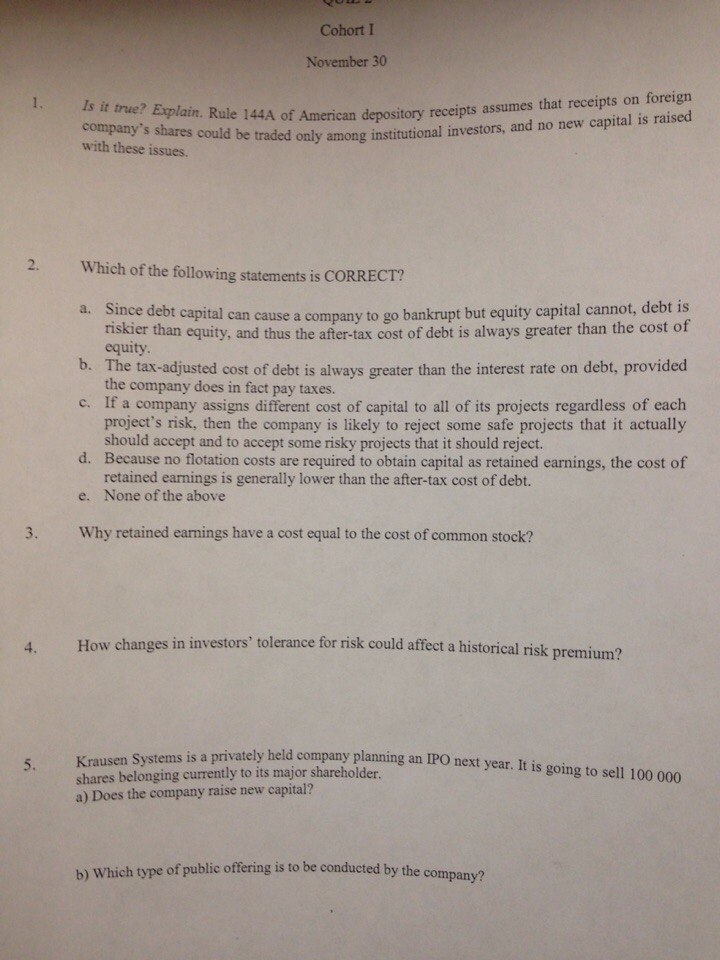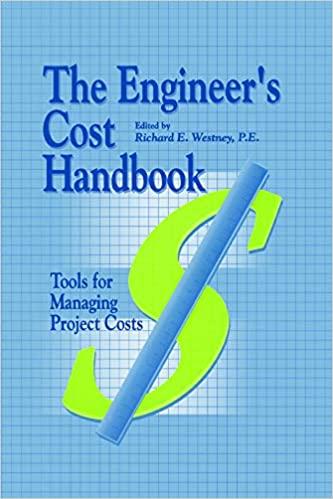
Is it true? Explain. Rule 144A of American depository receipts assumes that receipts on foreign company's shares could be traded only among institutional investors, and no new capital is raised with these issues. Which of the following statements is CORRECT? Since debt capital can cause a company to go bankrupt but equity capital cannot, debt is riskier than equity, and thus the after-tax cost of debt is always greater than the cost of equity. The tax-adjusted cost of debt is always greater than the interest rate on debt, provided the company does in fact pay taxes. If a company assigns different cost of capital to all of its projects regardless of each project's risk, then the company is likely to reject some safe projects that it actually should accept and to accept some risky projects that it should reject. Because no flotation costs are required to obtain capital as retained earnings, the cost of retained earnings is generally lower than the after-tax cost of debt. None of the above Why retained earnings have a cost equal to the cost of common stock? How changes in investors' tolerance for risk could affect a historical risk premium? Krausen Systems is a privately held company planning an IPO next year. It is going to sell 100 000 shares belonging currently to its major shareholder. Does the company raise new capital? Which type of public offering is to be conducted by the company? Is it true? Explain. Rule 144A of American depository receipts assumes that receipts on foreign company's shares could be traded only among institutional investors, and no new capital is raised with these issues. Which of the following statements is CORRECT? Since debt capital can cause a company to go bankrupt but equity capital cannot, debt is riskier than equity, and thus the after-tax cost of debt is always greater than the cost of equity. The tax-adjusted cost of debt is always greater than the interest rate on debt, provided the company does in fact pay taxes. If a company assigns different cost of capital to all of its projects regardless of each project's risk, then the company is likely to reject some safe projects that it actually should accept and to accept some risky projects that it should reject. Because no flotation costs are required to obtain capital as retained earnings, the cost of retained earnings is generally lower than the after-tax cost of debt. None of the above Why retained earnings have a cost equal to the cost of common stock? How changes in investors' tolerance for risk could affect a historical risk premium? Krausen Systems is a privately held company planning an IPO next year. It is going to sell 100 000 shares belonging currently to its major shareholder. Does the company raise new capital? Which type of public offering is to be conducted by the company







